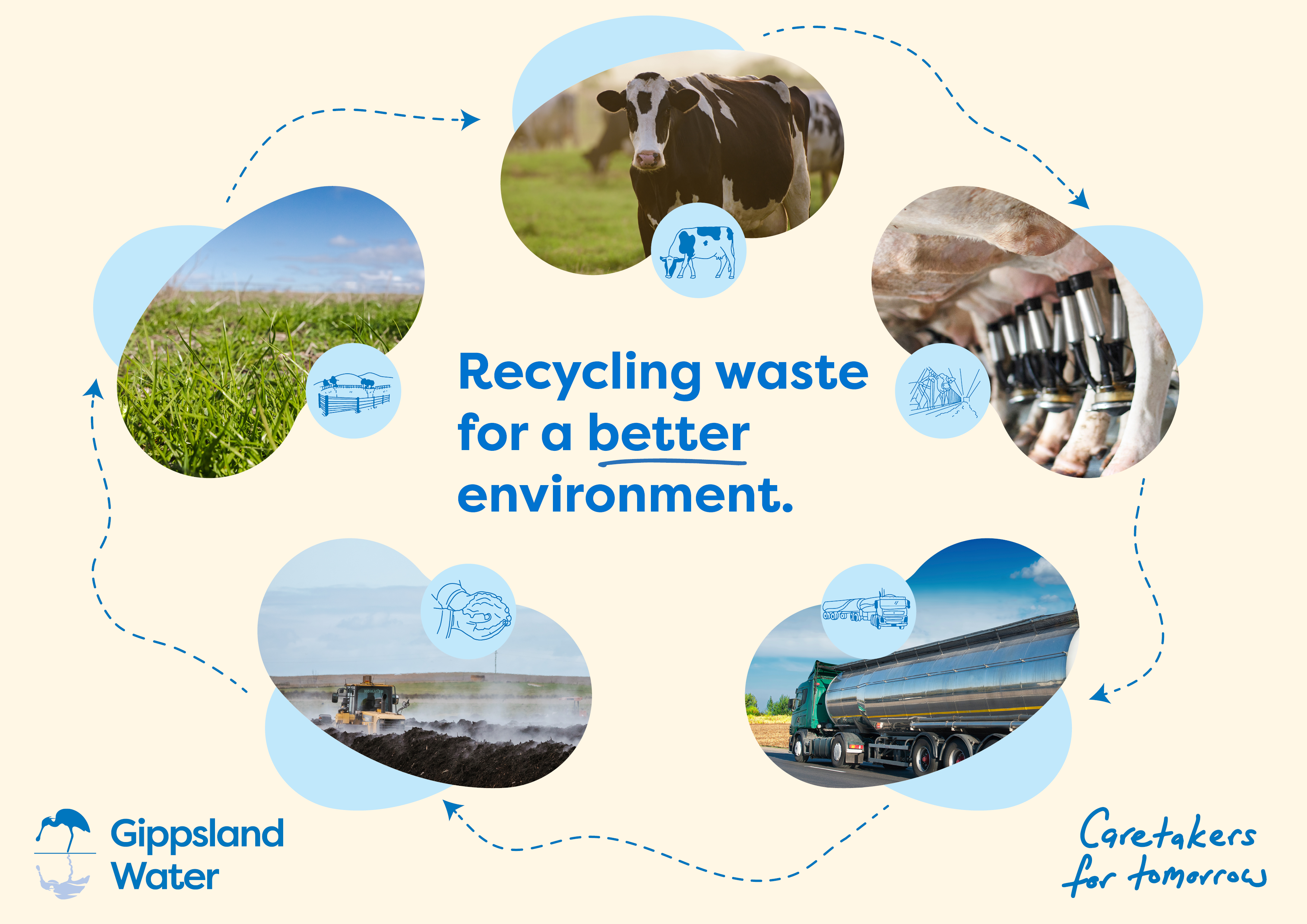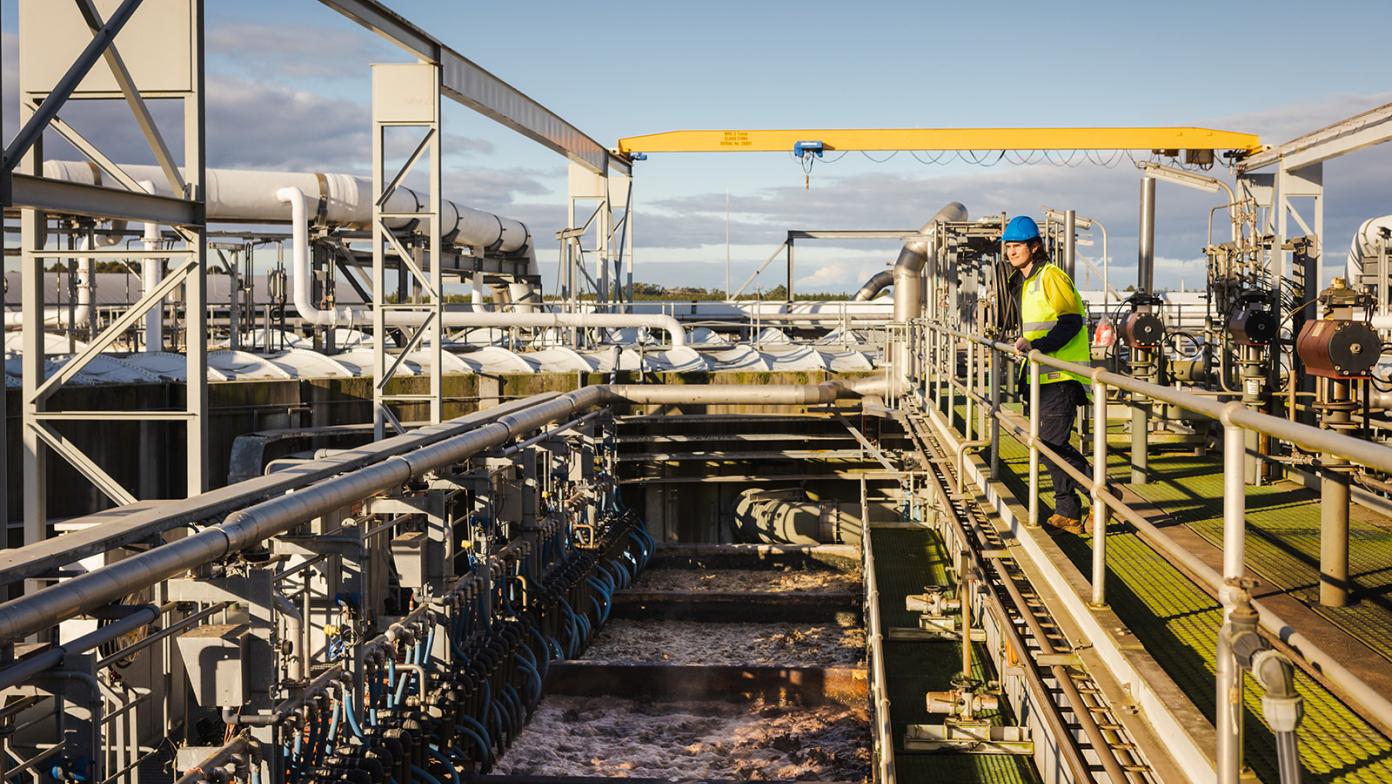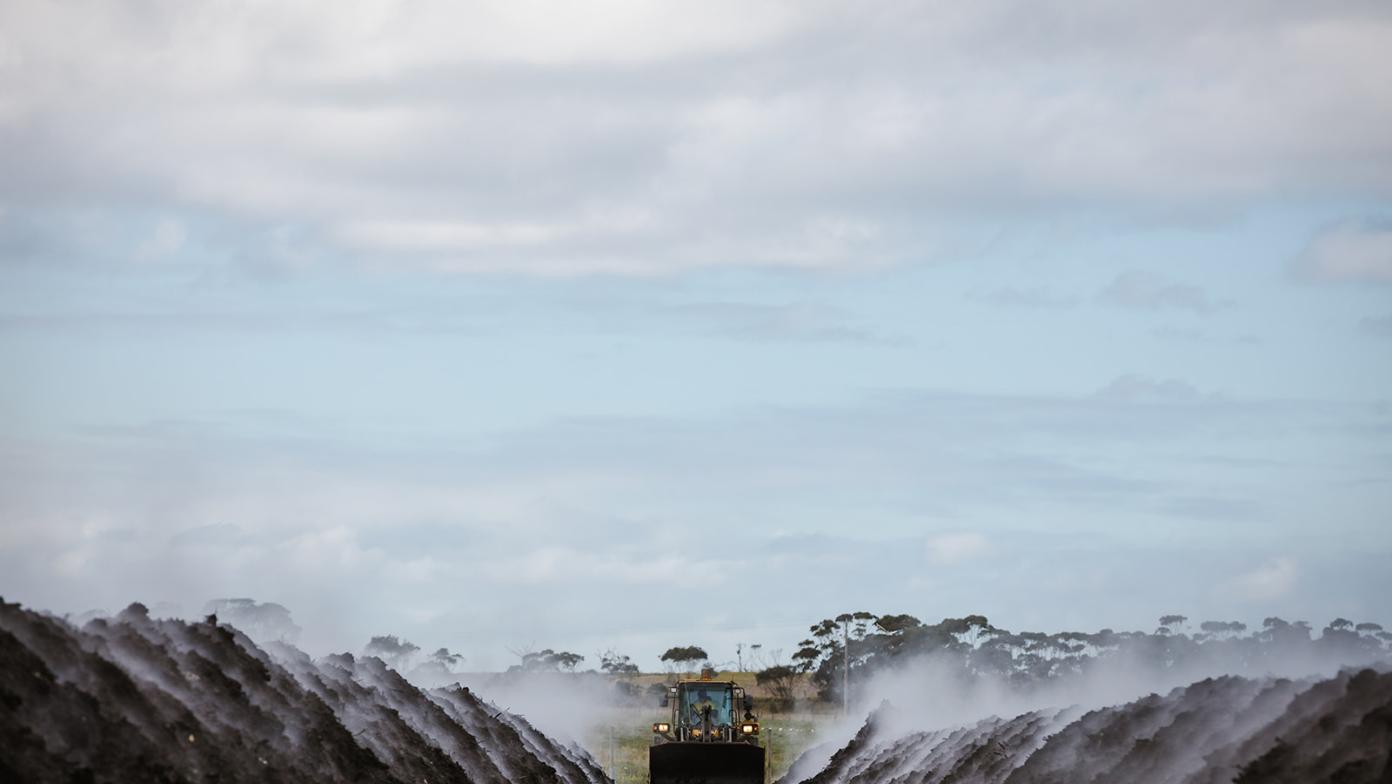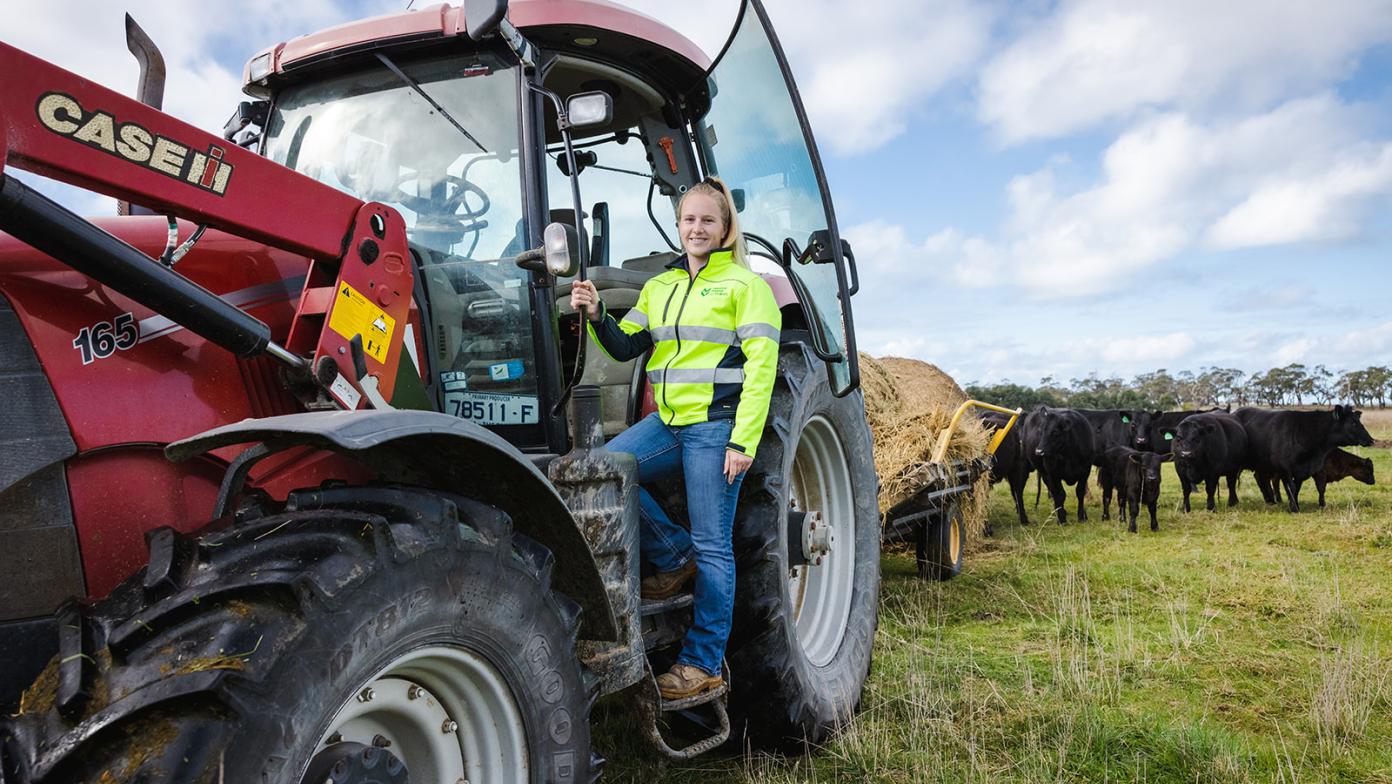Jump to topic
What is a circular economy?
A circular economy describes the sustainable way we use resources.
We're minimising waste, loss and our environmental impact and maximising efficiency by finding ways to reduce, reuse and recycle resources where we can.
Why is a circular economy good for our customers?
In this instance, going in circles really is the best way forward.
A circular economy is great for Gippsland's environmental and economic sustainability.
- good for the environment with less waste going landfill
- encourages local growth with more local jobs and investment in infrastructure
- improves our efficiency as we optimise processes and reduce reliance on external resources
- good for your wallet by generating income and reducing loss to help put downward pressure on customer bills.

Gippsland's circular economy
Wastewater treatment leaves us with two main waste products - treated organic material and treated recycled water.
The organic material remaining after treatment goes to our Gippsland Regional Organics (GRO) facility. We use natural processes to combine organic waste with farming and green waste to create high quality Australian certified compost. In the past, waste from wastewater treatment and local producers would end up in landfill.
We treat wastewater to meet standards set by the Environment Protection Authority (EPA). Once treated, we use it to irrigate pastures at our Gippsland Regional Agribusiness (GRA) farming properties across Gippsland.
We use our nutrient-rich compost at our farms to help keep our soil healthy, crops lush and cows' fat.
Local businesses purchase our Australian standards certified compost from GRO as well as fodder, crops and livestock from GRA. The income these sales generate for us helps put downward pressure on our customer bills.



